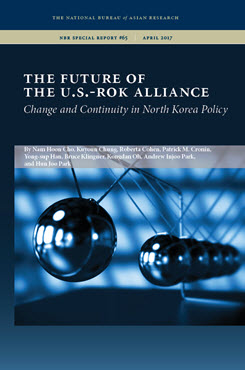Improving the Effectiveness of Sanctions against North Korea
This essay assesses the early impact of sanctions on North Korea and suggests policy options for improving the efficacy of the sanctions regime.
EXECUTIVE SUMMARY
MAIN ARGUMENT
UN Security Council Resolution 2270 went into effect in March 2016 and imposed the toughest sanctions to date on North Korea, covering international finance, trade, and the export of North Korean labor, among other areas. These sanctions have not had time to be fully realized, but it is already clear that their effectiveness varies widely by sector. Although South Korea’s decision to shut down the Kaesong Industrial Complex dramatically reduced the flow of cash to the Kim Jong-un regime, the impact of the UN sanctions on trade, particularly between China and North Korea, has been limited at best. Overall, North Korea continues to exploit numerous loopholes in the UN sanctions related to finance, trade, and exported labor, which poses significant obstacles for effective implementation. These loopholes must be closed if sanctions are to have any chance of ending or even slowing the Kim regime’s nuclear weapons program.
POLICY IMPLICATIONS
- In order to increase the efficacy of sanctions on trade, exceptions to embargoed goods must be eliminated or, if China objects to this measure, replaced with a quota system. In addition, pressure must be applied on Beijing to restrict unofficial trade in the border areas between China and North Korea.
- Loopholes in sanctions should be closed, including in the areas of international finance, trade, and labor export. In particular, given that income from North Korean labor abroad represents one of the biggest workarounds enabling the Kim regime’s acquisition of foreign currency, North Korean laborers should be repatriated.


